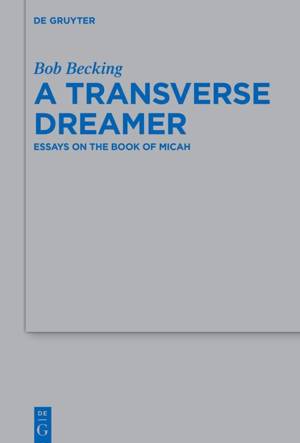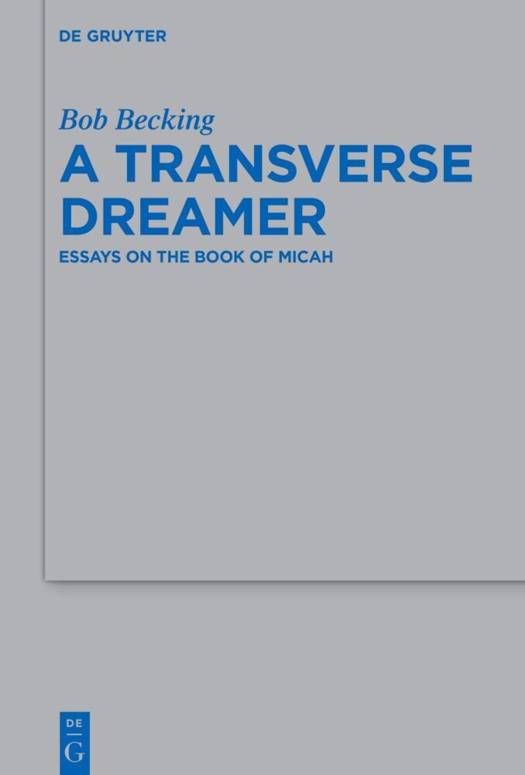
- Afhalen na 1 uur in een winkel met voorraad
- Gratis thuislevering in België vanaf € 30
- Ruim aanbod met 7 miljoen producten
- Afhalen na 1 uur in een winkel met voorraad
- Gratis thuislevering in België vanaf € 30
- Ruim aanbod met 7 miljoen producten
Zoeken
A Transverse Dreamer
Essays on the Book of Micah
Bob Becking
Paperback | Engels, Duits | Beihefte zur Zeitschrift für die alttestamentliche Wissenschaft | nr. 552
€ 15,45
+ 30 punten
Omschrijving
The final text of the Book of Micah provokes a series of questions:
- Can the Book be read as a coherent composition or is it the result of a complex redaction history?
- Was Micah a prophet of doom whose literary heritage was later softened by the inclusion of oracles of salvation?
The essays in this book center around these questions. Some of them are of a more general character, while others analyze specific passages. Some articles discuss the Book of Micah by looking at specific themes (prophecy; religious polemics; metaphors). The others are concerned with the proclamation of a peaceful future (Micah 4:1-5); the famous moral incentive in Micah 6:8 and the question of prophetic and divine gender in Micah 7:8-13. They have two features in common:
- A thorough reading of the Hebrew text informed by grammar and syntax.
- A comparative approach: the Book of Micah is seen as part of the ancient Near Eastern culture.
All in all, the author defends the view that the Book of Micah contains three independent literary elements: Micah 1: a prophecy of doom; Micah 2-5 a two-sided futurology, and 6-8 a later appropriation of Micah's message.
- Can the Book be read as a coherent composition or is it the result of a complex redaction history?
- Was Micah a prophet of doom whose literary heritage was later softened by the inclusion of oracles of salvation?
The essays in this book center around these questions. Some of them are of a more general character, while others analyze specific passages. Some articles discuss the Book of Micah by looking at specific themes (prophecy; religious polemics; metaphors). The others are concerned with the proclamation of a peaceful future (Micah 4:1-5); the famous moral incentive in Micah 6:8 and the question of prophetic and divine gender in Micah 7:8-13. They have two features in common:
- A thorough reading of the Hebrew text informed by grammar and syntax.
- A comparative approach: the Book of Micah is seen as part of the ancient Near Eastern culture.
All in all, the author defends the view that the Book of Micah contains three independent literary elements: Micah 1: a prophecy of doom; Micah 2-5 a two-sided futurology, and 6-8 a later appropriation of Micah's message.
Specificaties
Betrokkenen
- Auteur(s):
- Uitgeverij:
Inhoud
- Aantal bladzijden:
- 160
- Taal:
- Engels, Duits
- Reeks:
- Reeksnummer:
- nr. 552
Eigenschappen
- Productcode (EAN):
- 9783112215296
- Verschijningsdatum:
- 30/06/2025
- Uitvoering:
- Paperback
- Afmetingen:
- 155 mm x 230 mm

Alleen bij Standaard Boekhandel
+ 30 punten op je klantenkaart van Standaard Boekhandel
Beoordelingen
We publiceren alleen reviews die voldoen aan de voorwaarden voor reviews. Bekijk onze voorwaarden voor reviews.











